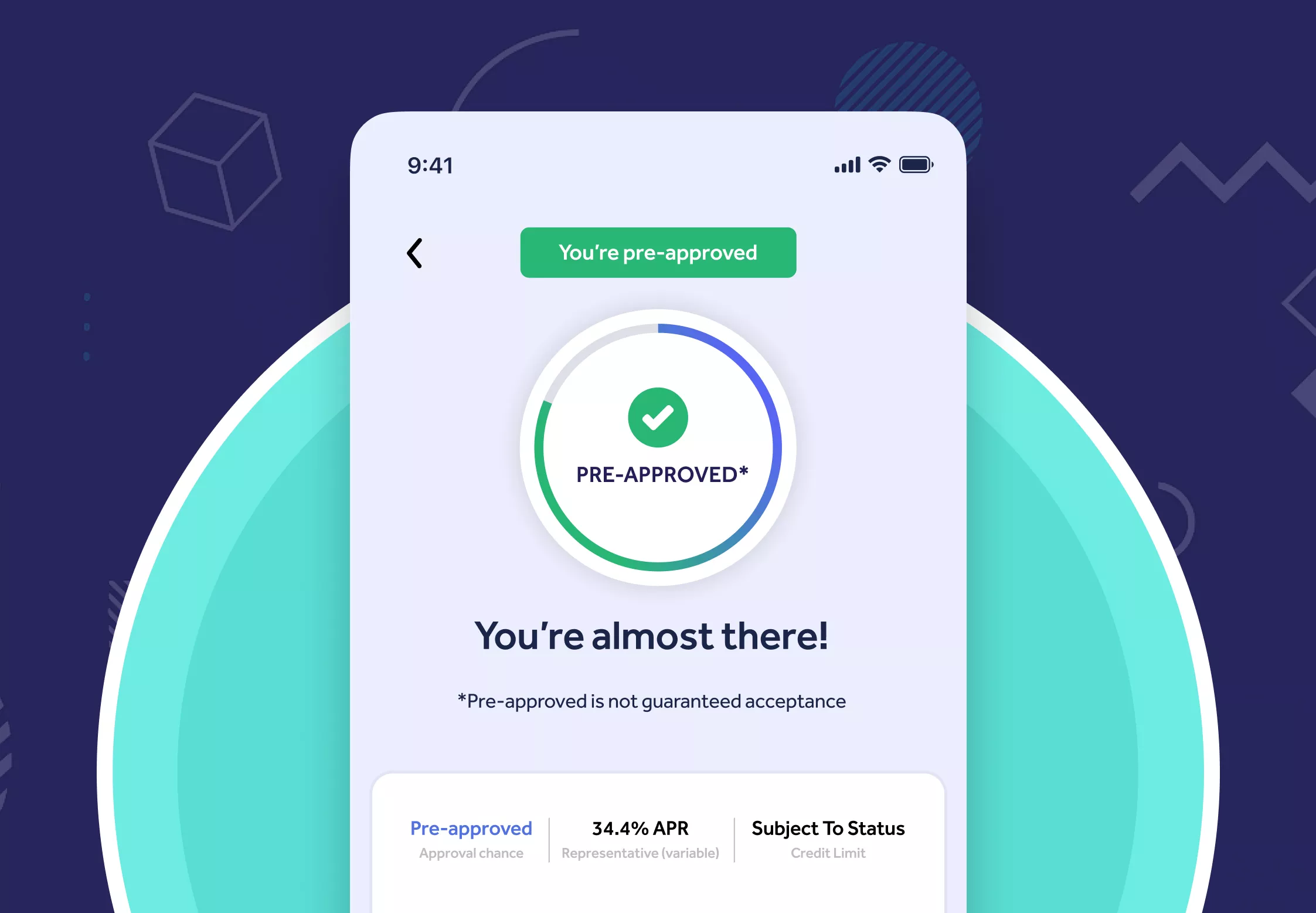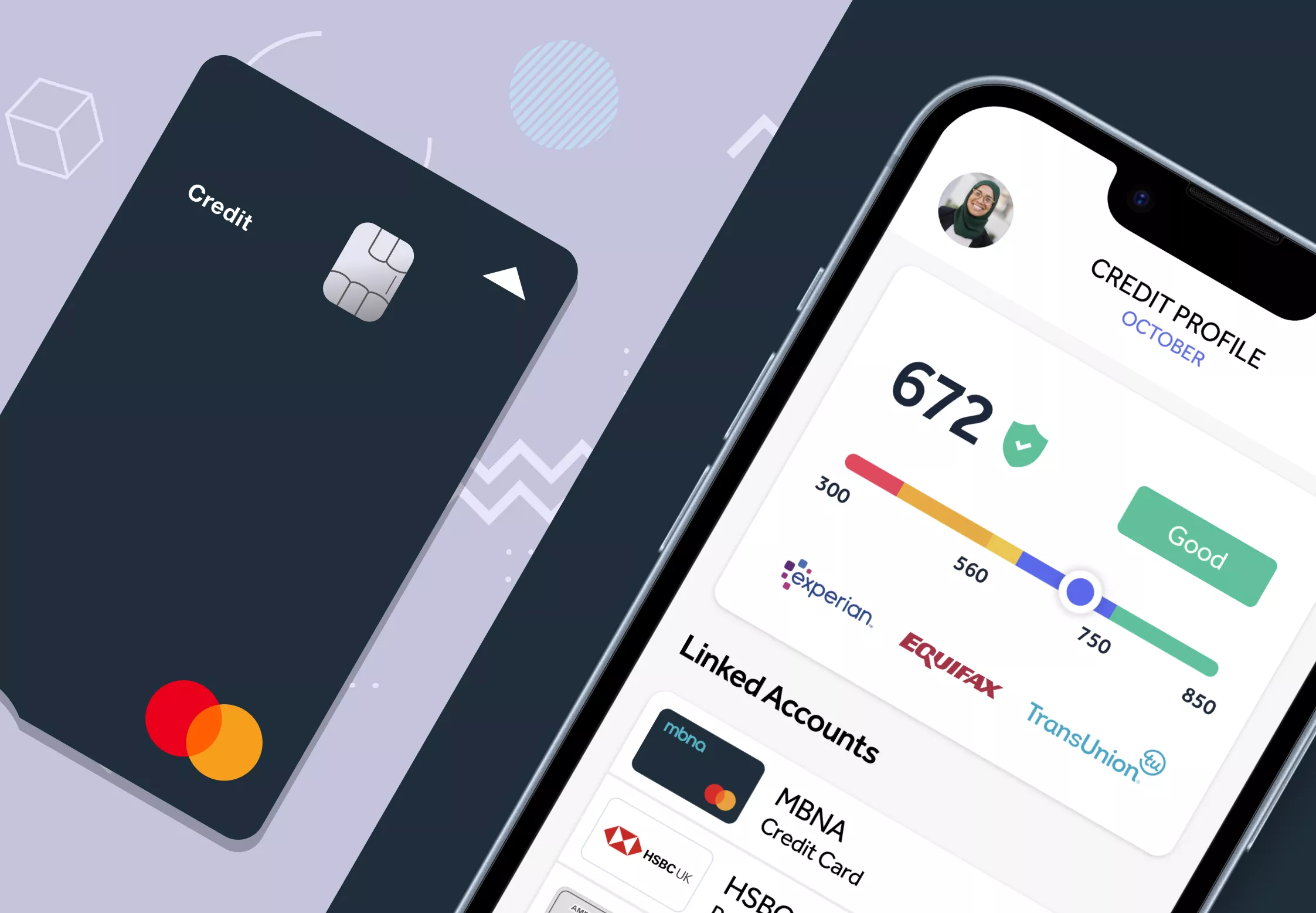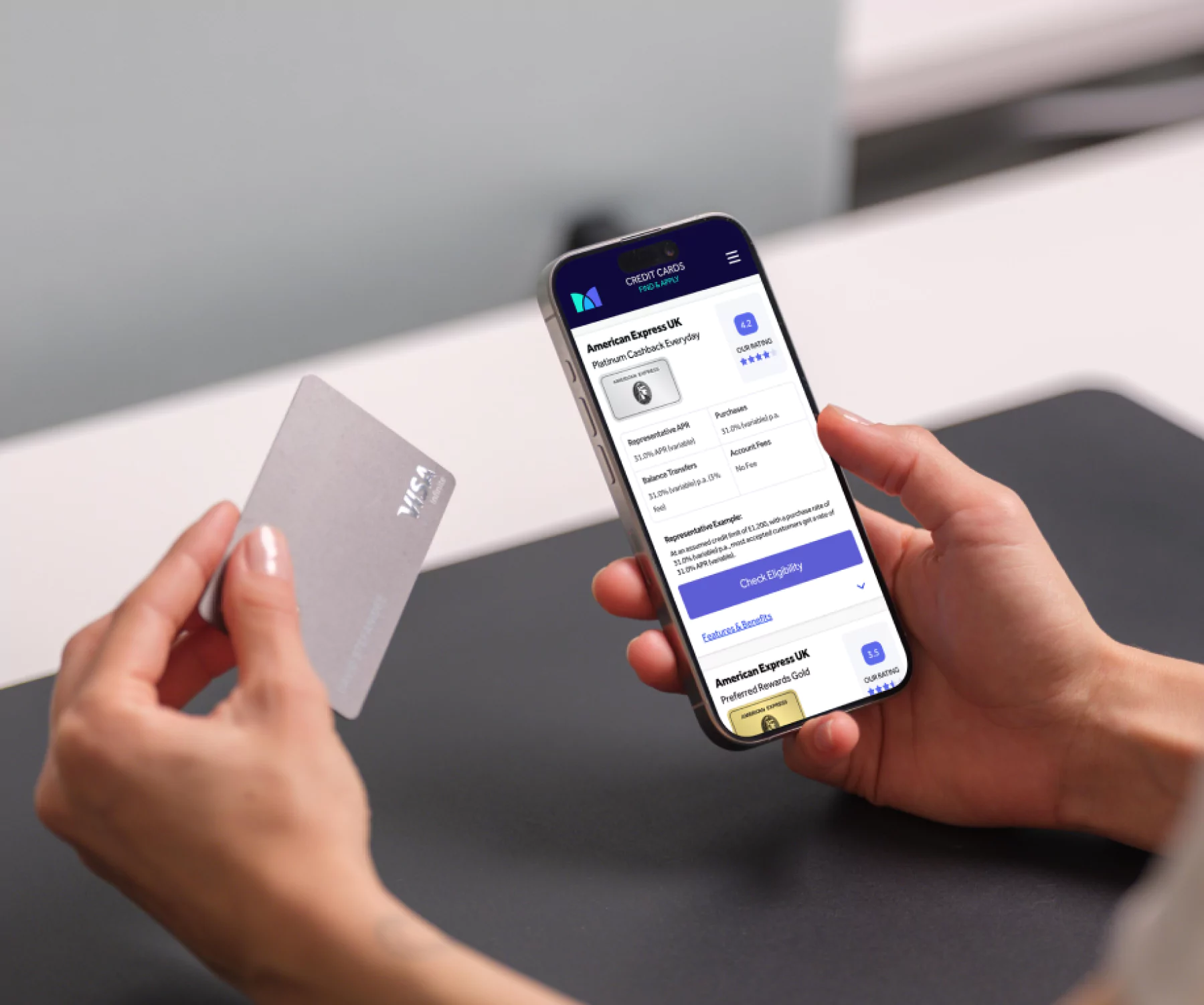Debt consolidation loans in the UK: bad credit and no guarantor options
Editor, Personal Loans: Michelle Blackmore
Last Updated: February 5, 2026
In This Article

What is a debt consolidation loan?
A debt consolidation loan is a type of Personal Loan used to repay multiple existing debts. Instead of making separate payments to different lenders, you borrow a fixed amount and use it to settle outstanding balances such as credit cards, overdrafts, or other loans. You then repay the new loan in fixed monthly instalments over an agreed term.
This approach can help simplify your finances by replacing multiple repayments with a single monthly payment. Depending on the loan terms and your credit profile, it may also reduce your overall cost of borrowing. However, it’s important to consider whether consolidating debt may extend the repayment period or increase the total amount repayable.
This guide explains how debt consolidation loans work, outlines potential advantages and drawbacks, and provides guidance to help you assess whether it may be suitable for your circumstances. If you’re unsure, consider seeking independent financial advice.
Debt consolidation is a common reason for taking out personal loans in the UK. According to the Financial Conduct Authority’s Financial Lives Survey, between 2020 and 2022, more than 1 in 4 personal loan borrowers reported using their loan to consolidate debt or repay other financial commitments. This reflects the financial pressure some individuals face when managing multiple debts and the perceived benefits of a structured repayment plan.
What can a debt consolidation loan be used for?
Most people use a debt consolidation loan to pay off:
- Credit card balances
- Overdrafts
- Personal loans
- Store cards or buy now pay later agreements
- Short-term or payday loans
Some lenders will ask you to confirm that the loan is being used to repay existing credit; some may even request evidence of your current balances during the application process.
How does debt consolidation work?
When you apply for a debt consolidation loan, the lender assesses your ability to repay based on your income, credit history, and current financial commitments. If approved, usually you receive the loan as a lump sum. You use this to repay existing debts, then make one fixed repayment each month to the new lender.
The terms, interest rate, and loan duration will depend on your profile. If you qualify for a lower rate than what you’re currently paying across multiple accounts, consolidating may save you money. However, extending the loan term can increase the overall cost even if the monthly payment is lower.
Always read the terms and conditions carefully and ensure you truly understand the full cost of the loan.
Who is a debt consolidation loan suitable for?
Debt consolidation may be suitable for people who:
- Have several debts and want to simplify repayments
- Can afford to make a regular monthly payment
- Are not behind on their current credit agreements
- Want to reduce the risk of missed payments or late fees
It may not be appropriate if your debts are already in arrears or if you’re struggling to afford essential living costs. In those cases, it’s best to speak to a free debt advice service before applying for more credit.
Mintip: Don’t borrow more than you need. Only borrow the amount required to meet your goal. Larger loans may come with lower rates, but the total cost of borrowing could be higher.
Can I get a debt consolidation loan with bad credit and no guarantor?
Yes, some lenders offer debt consolidation loans for bad credit in the UK with no guarantor required. Approval is based on affordability rather than just your credit score. You may not qualify for the lowest rates, but there are lenders who specialise in helping people consolidate debt even with missed payments or defaults in their credit file.
Most debt consolidation loans are unsecured, which means they don’t require any assets like a car or home as collateral. You can read more about how unsecured personal loans work in our full guide.
Using a soft search eligibility tool lets you see which lenders may approve you without affecting your credit score. It also allows you to compare terms before committing to a full application.
Compare debt consolidation loan offers
If you’re thinking about consolidating your debt, it’s important to compare loan offers carefully. Interest rates, loan terms, and total costs can vary significantly. Some lenders offer lower monthly repayments but longer terms, while others may help you pay off the debt faster but with higher instalments.
You can use free personal loan eligibility checker to view personalised loan offers you’re likely to qualify for. This allows you to make an informed decision before proceeding.

Get Personalised Loan Rates
Find lenders that may be able to approve you
Options for all credit backgrounds
Representative 32.9% APR
No impact to your credit score
Mintify Limited, trading as Mintify, is an Introducer Appointed Representative of Creditec Limited who acts as a credit broker, not a lender.
Pros and cons of debt consolidation loans
Pros:
- One fixed repayment instead of multiple debts
- Easier to manage your budget
- May reduce interest costs if the new rate is lower
- Clear end date for repayment
Cons:
- Longer repayment terms may increase total interest
- Some lenders may charge arrangement or early repayment fees
- May not be suitable for those already in arrears
- Consolidating does not address any underlying persistent debt concerns
How to check your eligibility and apply for a debt consolidation loan
Before you apply for a debt consolidation loan, it’s a good idea to check your eligibility. Most UK lenders now offer free eligibility checks that use a soft credit search. This means you can see whether you’re likely to be approved, without affecting your credit score.
Eligibility is based on a mix of factors, including:
- Your credit history
- Income and employment status
- Monthly outgoings and existing debt
- Whether the loan is affordable for you
Once you’ve used a soft search tool, you’ll be able to view personalised loan offers based on your credit profile and compare interest rates, loan terms, and total repayment amounts. If you see an option that works for you, you can continue to a full application with the lender.
At that stage, the lender may carry out a hard credit check and ask for additional documents such as payslips or bank statements. If approved, the funds are usually paid into your account directly and you can use them to pay off your existing debts.
Using an eligibility checker helps reduce the risk of rejection and gives you a clearer view of the loans you may qualify for, including options for bad credit or no guarantor.
Mintip: Use eligibility checkers before applying. Checking your eligibility with a soft search helps protect your credit file and reduces the risk of multiple rejections.
What to consider before consolidating your debts
Before applying, make sure you understand:
- The total cost of borrowing compared to your current debts
- Whether you can comfortably afford the new monthly repayment
- Any fees your current lenders charge for early settlement
- Whether this will genuinely reduce your financial stress
If you’re unsure, it may be worth speaking to an independent debt adviser before applying for a new loan.
Mintip: Always check the total repayment. Look beyond the monthly payment. Use the APR and loan term to calculate what you’ll repay in total, and compare this across lenders.
Are balance transfer credit cards a better option?
If the debt you’re consolidating is mostly on credit cards, a a balance transfer credit cardmay be a lower cost alternative to a personal loan. These cards allow you to move existing credit card balances to a new card with a 0% interest period, often ranging from several months to over two years.
Unlike a debt consolidation loan, which typically comes with interest from day one, a 0 balance transfer card lets you pay down your balance without interest as long as you stay within the offer period and make at least the minimum monthly payments. Remember, you much repay the balance in full before the 0 period ends to avoid paying any interest at all.
This option is usually best for borrowers with good credit who can repay the debt within the interest-free window. Keep in mind that balance transfer fees may apply, and missing payments can void the 0% offer.
Compare balance transfer credit cards to see if one could work better for your situation.
If you have bad credit, there are several credit building credit cards that offer balance transfer options too such as Capital One balance transfer
You can also use Mintify’s Balance Transfer Calculator to enter your own details and see how much you could save with a balance transfer credit card compared with your current card.
Balance Transfer Calculator
Existing Credit Card Balances
| Amount (£) | APR % (p.a.) |
|---|
New Credit Card Details
Results Summary
Balance Over Time
Payoff Schedule
| Month | Balance start (£) | Interest (£) | Payment (£) | Fees (£) | Balance end (£) |
|---|
Frequently asked questions about debt consolidation loans
Does debt consolidation hurt your credit score in the UK?
Taking out a new loan may cause a short term dip in your credit score, especially if a hard search is performed. However, if you repay on time, your score can improve over time as your overall credit utilisation decreases and payment history strengthens.
Can I get a debt consolidation loan online?
Yes, most lenders in the UK allow you to apply for a debt consolidation loan online. Many comparison services also let you check your eligibility first using a soft search, so there’s no impact on your credit score.
Are there debt consolidation loans with no guarantor?
Yes, most personal loans used for debt consolidation do not require a guarantor. Some lenders specialise in helping applicants with less than perfect credit consolidate their debts independently.
How do I apply for a debt consolidation loan?
Start with an eligibility check to see which lenders may approve you. Once you see your options, you can compare interest rates, loan terms, and fees. If you’re happy with an offer, you can proceed to a full application with the lender.
Tips for choosing the right debt consolidation loan
Focus on the APR, loan term, and total repayment amount. Check whether any setup or early repayment fees apply. Choose a lender that is authorised and regulated by the Financial Conduct Authority and offers a transparent explanation of costs.
Is a debt consolidation loan right for you?
A debt consolidation loan can help reduce stress by simplifying your repayments, but it’s not suitable for everyone. If you have a stable income, manageable debt levels, and want to bring your finances under control, it may be worth considering. Always compare offers carefully and understand the full cost before you proceed.
If you’re not sure where to start, use a free loan eligibility checker to see which debt consolidation loans you could be eligible for without affecting your credit score.

Get Personalised Loan Rates
Find lenders that may be able to approve you
Options for all credit backgrounds
Representative 32.9% APR
No impact to your credit score
Mintify Limited, trading as Mintify, is an Introducer Appointed Representative of Creditec Limited who acts as a credit broker, not a lender.
Related Articles
Check your credit card eligibility in the UK
Balance transfer cards for credit builders
How much can you balance transfer?
The content presented here has been impartially gathered by the Mintify team and is offered on a non-advised basis for informational purposes only. We adhere to strict editorial integrity
Editor, Credit Cards: Michelle Blackmore
Last Updated: February 5, 2026


